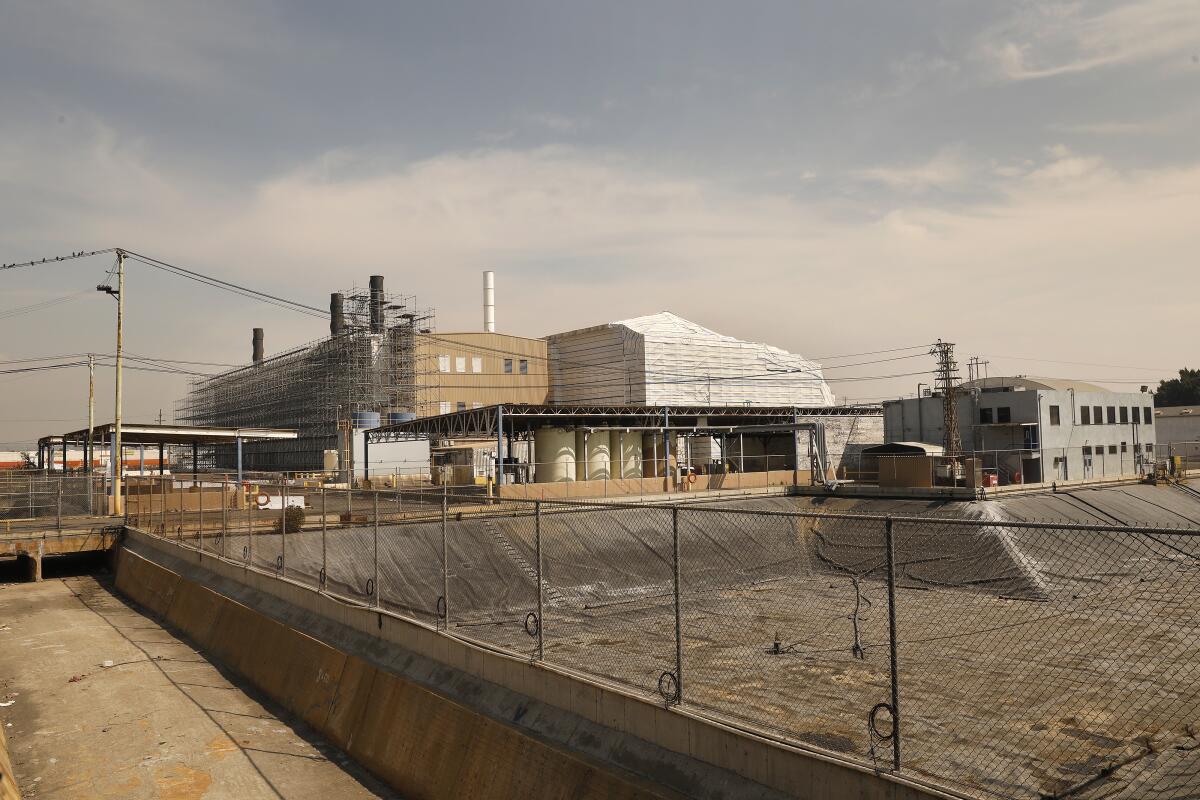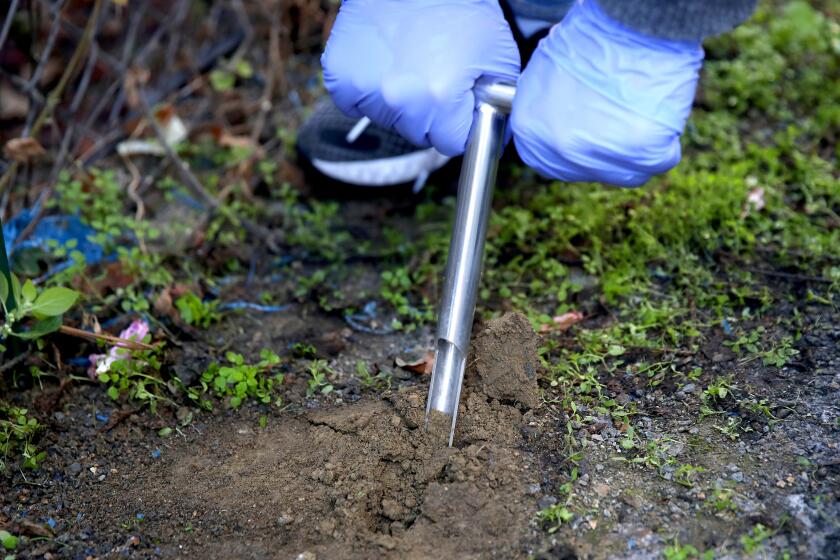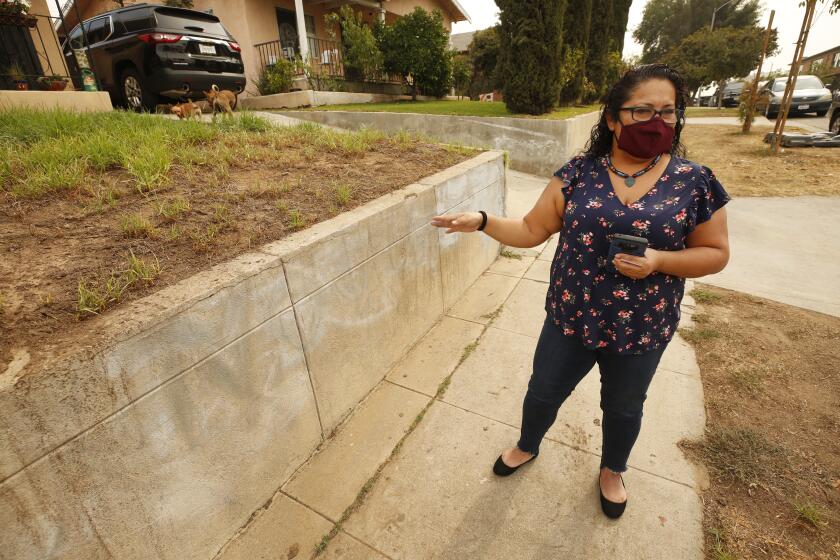State proposes $67 million to clean toxic parkways near former Exide battery plant

California’s budget proposal commits $67 million to clean thousands of lead-contaminated parkways in front of homes, schools and parks near the former Exide battery smelter in southeast Los Angeles County, state officials announced Friday.
At a news conference to discuss funding in California’s environmental budget, state Environmental Protection Agency Secretary Yana Garcia said the state’s proposal will dedicate $40.4 million in this year’s budget, and nearly $27 million next year, to remove and replace toxic soil from more than 6,400 parkways — the publicly owned strips of land typically wedged between sidewalks and streets.
The funding will come from fees the state collects on car battery purchases.
Numerous homes that underwent remediation have been left with lead concentrations in excess of state health standards, according to USC researchers.
“This key proposal builds on the administration and the Legislature’s commitment to protecting communities and the environment from exposure to hazardous chemicals after Exide shirked its responsibility to clean up its contamination and bankruptcy courts subsequently let it off the hook,” Garcia said. “This investment specifically allows us to work toward removing pathways of exposure for local residents, including children, surrounding the former Exide facility.”
The announcement marks a drastic change in the state’s approach to cleaning up properties surrounding the Exide battery recycling plant, which released lead and arsenic for decades. As many as 10,000 properties within 1.7 miles of the plant may have been contaminated, according to the state.
The California Department of Toxic Substances Control, the lead agency, has cleaned more than 4,600 properties surrounding the dormant plant but did not address highly contaminated strips of land that sit directly in front of them.
The revision to the state budget follows a Los Angeles Times investigation that found dozens of homes that had already been cleaned by state contractors still contained lead concentrations above state limits. The Times analysis revealed serious lapses in the state’s cleanup procedures.
The funding loss has outraged residents and angered Assembly members who worked to obtain funding for the six-year effort.
One of the most common complaints from residents was that although state contractors removed the contaminated soil from residential lots, they left contaminated parkways that were directly in front of them untouched.
Community members worried that the refusal to clean the parkways would allow people and pets to track contaminants into homes, or allow toxic dust to blow onto cleaned properties.
In 2018, state lawmakers appropriated $6.5 million to test more than 8,100 parkways. That soil analysis, which cost $2.9 million, found that 76% of the parkway samples contained lead concentrations in excess of the state health threshold.
The remaining funds were supposed to be spent cleaning up the parkways with the greatest lead levels and highest risk of exposure. But the agency never devised a plan for cleaning parkways and failed to spend any of the remaining $3.6 million within the two-year period.
Instead, those funds were returned to the state’s general fund and went toward the statewide COVID-19 response after June 2020, state officials said.
“I am grateful that the Governor is prioritizing funding for this cleanup,” Los Angeles County Supervisor Janice Hahn said in a statement. “The communities surrounding Exide are still suffering from lead contamination and we can’t let them be forgotten. Cleaning up the parkways shouldn’t be an afterthought. Even if every yard is lead-free, parkways contaminated with lead still pose an unacceptable threat to the health of kids living in these neighborhoods.”
Residents have long asked for parkways to be cleaned, and mark! Lopez, a community organizer for East Yard Communities for Environmental Justice, said he was pleased at the possibility it could finally be addressed.
“I think this is an opportunity to finally do the cleanup the right way,” he said.









